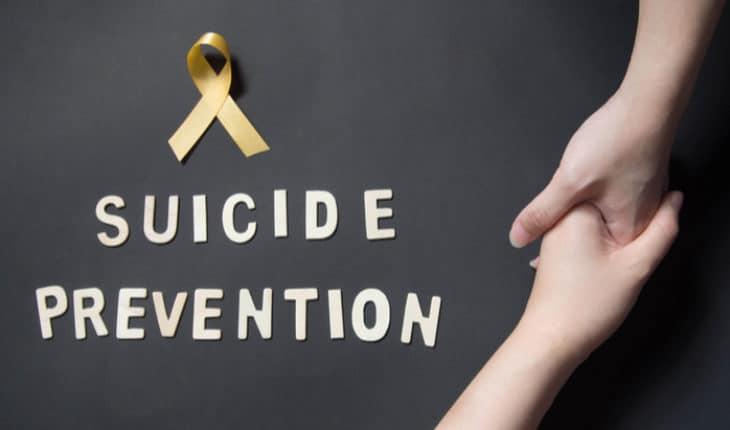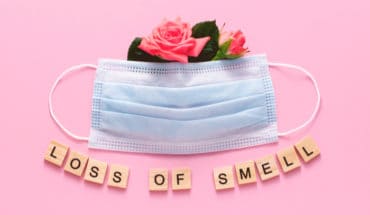Scotland’s National Suicide Leadership Prevention Group respond to 2019 increase in deaths by suicide
Key figures who are leading Scotland’s new approach to suicide prevention today reacted to the news that the number of people who died by suicide in Scotland in 2019 rose for a second successive year.
Statistics released by National Records of Scotland show that there were 833 probably suicides registered in 2019, an increase of 6% on 2018 (which was up 15% on 2019). This is the highest annual total since 2011 (889).
Men accounted for nearly three quarters (74%) of probable suicides in 2019, a similar proportion to every year since the late 1980s.
Nearly a third (32%) of all probable suicides were of people aged between 45 and 59. Over the latest five years, the proportion of probable suicides was largest in the 45-49 age group (12% on average). This is a shift in age group from the late 1990s when the largest proportions were for people in their late 20s and early 30s.
Data from 2019 shows some specific areas of increase from 2018. In particular there was an increase in female suicide in the 15-24 age bracket (nine additional deaths, 41%), with male deaths also up (eight additional deaths, 13%). There has also been an increase in male and females over 55.
The National Suicide Prevention Leadership Group (NSPLG), set up in late 2018, is an independent group formed to advise on and support delivery of the Scottish Government’s Suicide Prevention Action Plan. The group includes those with lived, academic and professional experience.
NSPLG chair, Rose Fitzpatrick CBE, QPM comments:
“Every single one of the 833 deaths by suicide reported in the 2019 statistics released today is a tragedy and its impact is widely felt. As members of Scotland’s National Suicide Prevention Leadership Group we believe that every life matters and we extend our heartfelt condolences to each of those families and friends who have lost a loved one to suicide.
“Suicide is a complex issue and one which, as the 6% increase reported today (following a 15% increase in 2018) shows all too clearly, continues to challenge us in Scotland and elsewhere to do more to support the wellbeing, mental health and life circumstances of those at risk. We must of course take care not to overinterpret a single year’s data, but we also see today that while men continue to make up three-quarters of those lost to suicide, last year saw an increase in the rate of suicide among young people in their early 20’s. We strongly believe that no loss of life to suicide should be considered inevitable and that every one of us can help.
“Today’s news shows that now more than ever we need to encourage people of all ages to talk about suicide, to be able to ask for help and to feel confident to give help when it is needed. Since the period to which today’s figures relate we have launched a new public awareness campaign for Scotland called United To Prevent Suicide, to help change the conversation and reduce the stigma about suicide. It aims to give every one of us the opportunity to play our part in supporting family, friends or colleagues who need to talk about suicide.
“We have already seen almost 2,000 people come together through United to Prevent Suicide, and we hope many more will do so over the coming months. As today’s figures sadly show, this is an issue which affects every community in Scotland and it is important that we all play our part in raising awareness of and preventing suicide.
“Underpinning this work to raise public awareness are other actions under Scotland’s Suicide Prevention Action Plan which are being progressed with the help of members of our Lived Experience Panel, including the introduction of a suicide bereavement support service pilot in several parts of Scotland in early 2021.
“The 2019 statistics released today come almost 11 months after the reporting period to which they refer. While we acknowledge the unique difficulties arising from the current pandemic, as we set out in our COVID-19 Statement on 30 June 2020 it is imperative that there is more timely suicide and self-harm data to inform suicide prevention efforts. The Scottish Government accepted this recommendation and we are pleased to see that it is being progressed.
“Suicide prevention has never been more important. While today’s figures predate COVID-19, the pandemic is likely to have a long-term impact on wellbeing and mental health as people’s lives change. For that reason, we have recommended and the Scottish Government will now take forward the creation of a long-term suicide prevention strategy which includes but goes beyond mental health to address issues affecting people’s life circumstances, such as equalities, employment and the economy. As today’s figures show, it remains the case that the tragedy of suicide is three times more likely to occur among those living in the most deprived areas of Scotland than it is in the least deprived.
“As Scotland’s National Suicide Prevention Leadership Group we will go on working closely with those who have lived experience and with the Scottish Government as we all redouble our efforts to prevent the tragic loss of lives to suicide and the deep impact each suicide has on those left behind.”
Stephanie Craig (20) is part of NSPLG’s lived experience panel. She attempted to take her own life twenty times, after suffering emotional and sexual abuse from an early age. Now she’s part of redefining how we support people at risk of suicide, in Scotland.
Stephanie says:
“It’s alarming that the numbers have increased this much in just a year and that is without a pandemic. There needs to be more support and interventions put into place.
“The numbers for young people/ young adults are increasing rapidly and these figures are screaming that there needs to be more support for these age groups.
“There needs to be more focus on improving access to supports, especially in deprived areas where if we look closely we will see the numbers are higher in deprived areas and are rising.
“Society is facing more pressures than ever and with young people/ young adults they have more stresses, more pressures and social media again will play a huge role in people who are struggling.
“It’s also worth mentioning that children and young adults are facing more pressures with education, there’s not enough supports in schools to cope with the high demand of children and young people needing support.
“The work of the NSPLG and the Lived Experience Panel highlight that there is a clear problem in Scotland and there is a need for more support and for us all to be doing more.”
Jennifer Barnes’ brother Calum died by suicide in 2017. Nominated for a Bafta for her contribution to the BBC Scotland documentary ‘Lumo – Too Young To Die’, Jen has been a huge part of the our new national campaign, United To Prevent Suicide.
Jennifer comments:
“The figures released today don’t come as a surprise, and we have to remember these are the 2019 statistics. That’s why now more than ever, the work that we do as the Lived Experience Panel for the NSPLG is of the utmost importance.
“We have the unique opportunity to help make a difference by having experienced suicide from a number of different perspectives and can offer a personal story that may help someone to understand the emotions that they are dealing with.
“Being part of the new United to Prevent Suicide Campaign has allowed our voices to be heard and the hope for the future is that we can make a difference by encouraging people to look out for not only their loved ones but anyone that they think may be struggling especially in these unprecedented and uncertain times.”
Steve Platt FAcSS, Emeritus Professor of Health Policy Research at University of Edinburgh and co-chair NSPLG Academic Advisory Group comments:
“It is fairly clear now looking at the rolling average that the long-running downward trend of deaths by suicide ended in 2015.
“Although men and women in their middle years (35-54) continue to have the highest rate of death by suicide, we’re seeing an increasing trend in both older and, worryingly, in younger people.
“If we look at deaths in women aged 15-24 years we can see the number has risen from 8 people in 2015 to 33 people in 2019. That’s significant and something we’re going to need to look at very closely.
“We need to study this data carefully so we can learn more about how we channel our efforts into suicide prevention. It’s a challenge we must rise to.”
Learn more about Scotland’s new public awareness campaign, United to Prevent Suicide, and join our new social movement at unitedtopreventsuicide.org.uk.
National Records of Scotland have released complete data which can be viewed here.
If you or someone you know is struggling with their mental health or feeling suicidal, please don’t hesitate to ask for help by contacting your GP, NHS24 on 111, Samaritans on 116 123 or Breathing Space on 0800 83 58 87.
- New lipid-based pathway discovered as key to memory formation - 25th June 2025
- Crucial link could explain how Alzheimer’s takes hold - 25th June 2025
- Understanding Your Mind Can Improve Daily Life - 25th June 2025







